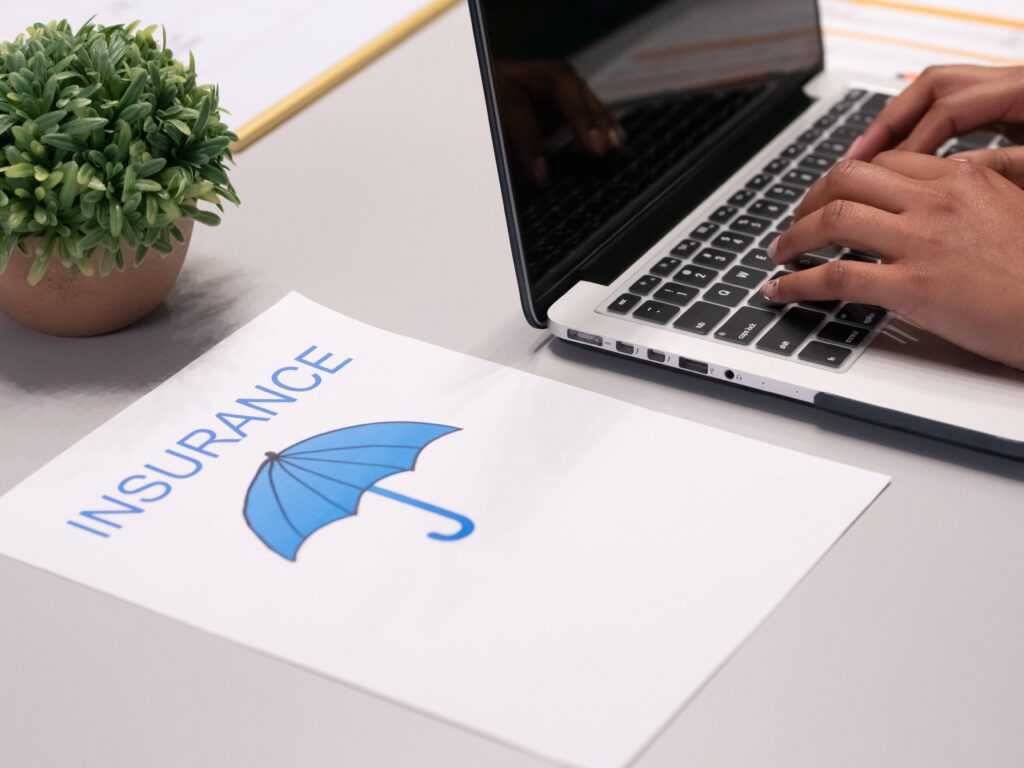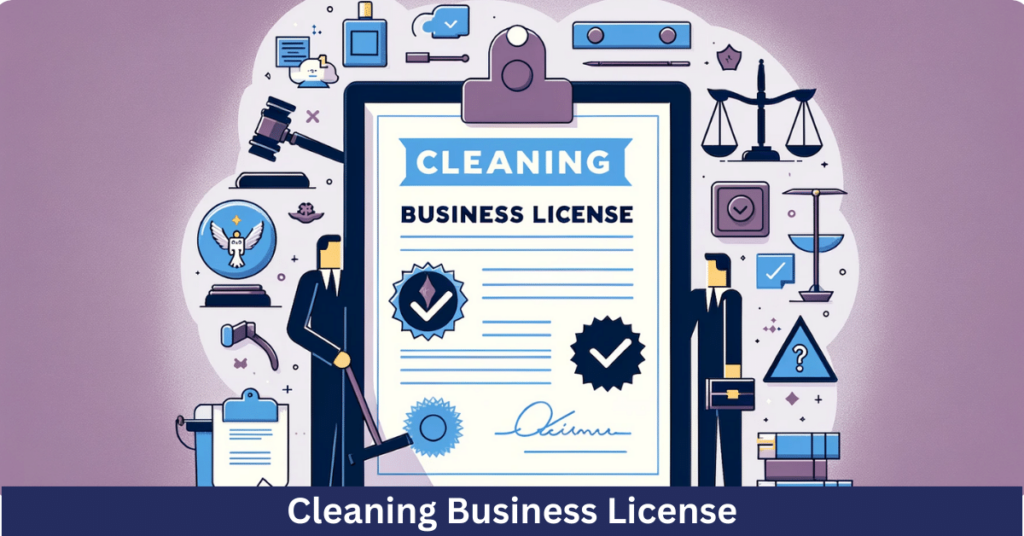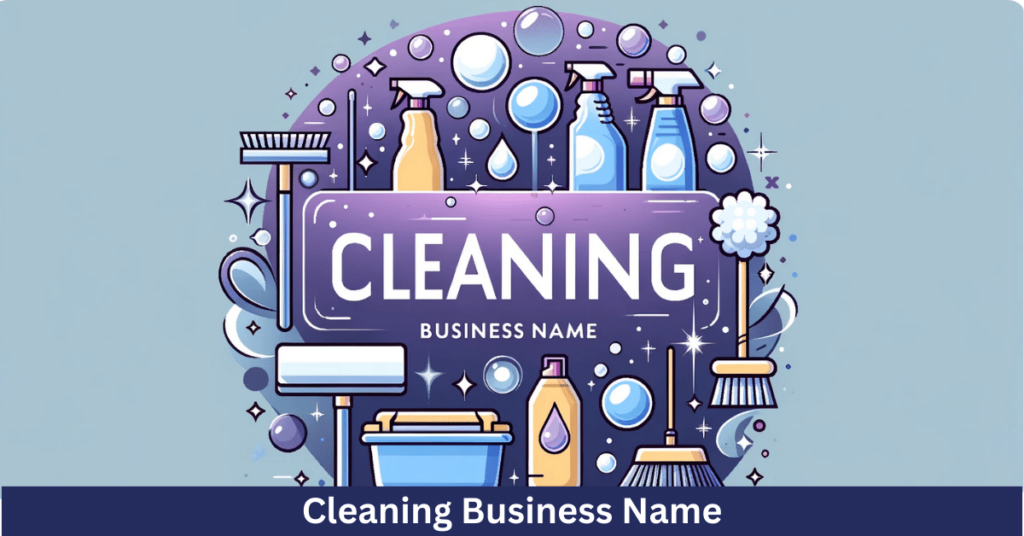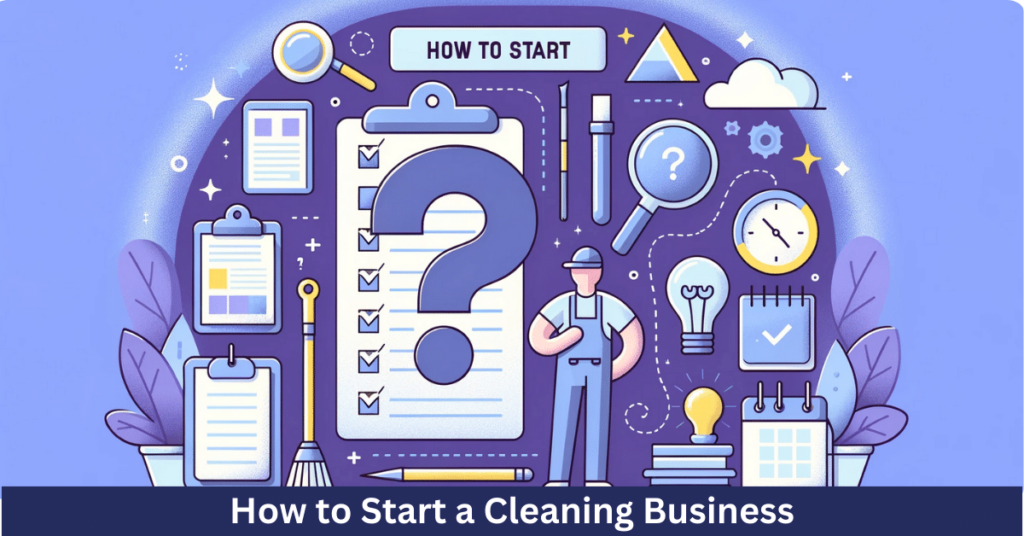If you plan on starting your cleaning business or already have a cleaning service, you need to make a checklist of things the government requires to allow you to operate legally.
While insurance is secondary, licensing and business registration are primary legal requirements to start a cleaning business.
In this guide, we discuss the importance of a cleaning business license
Keep in mind that licensing requirements may differ according to state or city. So, take the information in this article as a standard guide and consult your local government for more information on the subject. Let’s get started.

What Kind of Cleaning Business Licence Do You Need?
As a cleaning business, you might need one of the two licenses: ‘doing business as’ license or vendor’s license. Both of these licenses allow you to operate legally in your state.
Here is the difference between the two:
DBA License
A DBA license is the cleaning business license you get if your company is called something other than its legal registered name.
On the one hand, it protects customers from unethical practices. On the other hand, it ensures no other company can steal your name and operate under it.
This cleaning company business license usually comes with regulations on what other services the company can offer. For example, some cleaning companies offer both residential and commercial cleaning services while others are restricted only for doing residential cleaning jobs.
Vendor’s License
Business insurance or coverage can save you from the troubles at a time of despair.
In case you accidentally break a client’s property or possession while doing your job, business insurance protects you from getting sued.
That’s why business coverage is an essential thing to have before you go bidding on clients.
Besides, you should watch out whether you have full coverage insurance or not. Usually, an office cleaning job requires more coverage than a house cleaning job as you’re dealing with costly equipment there.
So, decide wisely.
How to Get a Business License for Your Cleaning Services?
To operate your cleaning service legally, you need to determine a structure for it first. After that, you’ll need a general business license and a vendor’s license to work in your state.
Choose the Structure
In the first step, you have to determine if you will work as a sole proprietorship or a limited liability company. Both come with different perks and are suitable for varying scopes of businesses.
DBA Registration
If you wish to operate as a sole proprietorship, you should register for a DBA as soon as you apply for the vendor’s license. Select a DBA name for your company. In doing so, you cannot separate your business assets from personal assets.
Thus, if the business goes into loss, your personal assets will also be at risk since they will be used to compensate for the loss. You should opt for a sole proprietorship if you are starting small or having under five employees.
Meanwhile, if you’re working alone and don’t intend to hire employees any time soon, this is a good option for you.
LLC Registration
You should choose to register yourself as an LLC if you want to get more perks but are not ready to pay the filing fees for a corporation. If you plan on keeping the business small for the time being, register as an LLC.
Apply for a Vendor’s License
After this step, get a vendor’s license as per your state’s laws. You can apply for it at the city clerk’s office. Keep in mind that you’ll only get a vendor’s license if you have a general business license.
So, make sure to choose whether you wish to operate as an LLC or a DBA registration.
Get Bonded and Insured

Once you have received your license, you can start looking for customers. However, some clients will feel more confident if you have surety bonds and insurance.
The terms may sound a bit overwhelming, but they’re pretty simple. Being insured means you have business insurance, while being bonded means your company has purchased surety bonds.
When you buy a surety bond, three parties are involved in the process:
- Principal: In this case, it’s you since you’re buying the bond.
- Obligee: It is the client that requests the bond.
- Surety: It is the company underwriting the bond.
Being insured means cleaning companies have protection against liability should cleaning jobs go wrong. Good cleaning business insurance can protect the cleaning business from being sued if someone is hurt at a cleaning job or property is damaged during a cleaning job.
A bond protects the customer in case of damage to their property, and an insurance policy will cover any injuries that may occur at the home or office while the cleaning company is there.
In addition, both bonding and insuring your cleaning business also show customers that you are trustworthy and professional when it comes to doing your part in providing a thorough, quality cleaning service.
Which Insurance Should Cleaning Businesses Get?
Insurance can help cleaning businesses stay on the safe side and satisfy customers subsequently. Here are some kinds of insurance a small business can get when providing cleaning services.
General Liability Insurance
It refers to a broad kind of coverage for cleaning businesses. While cleaning, you might accidentally injure someone or damage something that belongs to somebody else. Your cleaning business can also be sued as a result of the actions of your cleaning team. For instance, if one of your workers loses a key, insurance will cover the cost of equipment and lock replacement.
Commercial Auto Insurance

If you use a vehicle to go to your client’s homes or offices, get it insured. Auto insurance will cover any loss due to accidents, theft, and vandalism.
Worker’s Compensation Insurance
It covers medical bills of injured employees and reimburses them for any lost wages. Worker’s Compensation Insurance is legally required in all states and can be purchased through your cleaning association.
What If You Operate Without A License?
If you operate without a business license, you may be in violation of the municipal code and fined. The consequences will depend on the severity of the laws in your state.
Here are some possible consequences:
- You may be denied a business license in the future.
- You may face jail time according to the local government’s laws.
- The government might suspend your business
- You may be fined a hefty amount.
herefore, it is important to get a cleaning business license if you do not want to face any unwanted consequences later. The process is quick, straightforward, and doesn’t cost a fortune.
Conclusion
One thing is clear; you need a business license to operate as a cleaning company in the US. If you’re doing business with a license, you will get in trouble and may end up in jail.
Therefore, it’s important to get a business license for your company. If you need any additional legal advice, do not hesitate to consult your local government’s helpline.
Frequently asked questions
Have some questions about your cleaning business, see below for some commonly ask questions
An operating permit is issued by your local cleaning association, while a business license is issued by your city or county. Therefore, an operating permit is not required by law, while a cleaning business license is.
An operating permit will identify you as a legal cleaning service provider and help protect your cleaning association from liability issues, but it won’t give you any other benefits that a cleaning business license can offer you. An operating permit is therefore only optional for cleaning businesses.
To apply for a business license, contact your state’s taxation or revenue department. They may redirect you to your county’s clerk. Alternatively, you might have to go to the licensing board of your city.
When you go to the right place, they will tell you the requirements for the business licenses.
You need to renew your cleaning business license once a year or every few years. As for DBA licenses, they are valid for up to five years. You should also check your state laws to learn more about renewals and related fees.
A surety bond is a promise to be held accountable for cleaning solutions provided by your cleaning service. Although they are not required by law, they can be valuable for your business.
In case you inflict damage onto the client’s property, or one of your workers steals from the client, the payment from the bond will go directly to the client.
Speaking of the business license cost, it can range from $100 to $1000 a year.
If you register as a limited liability company, you will have to pay $100 to $500 per year, depending on your state. On the other hand, insurance will also add a couple of hundred dollars to the final cost.
If you have your own cleaning business, you can either connect its finances to your bank account or get a separate one for the company.
As a small business, you will pay less than $50 a month for insurance. That’s the median for janitorial and cleaning businesses in the country. However, your payment may be a bit higher, depending on the insurance coverages you have opted for and the number of employees in your company.





